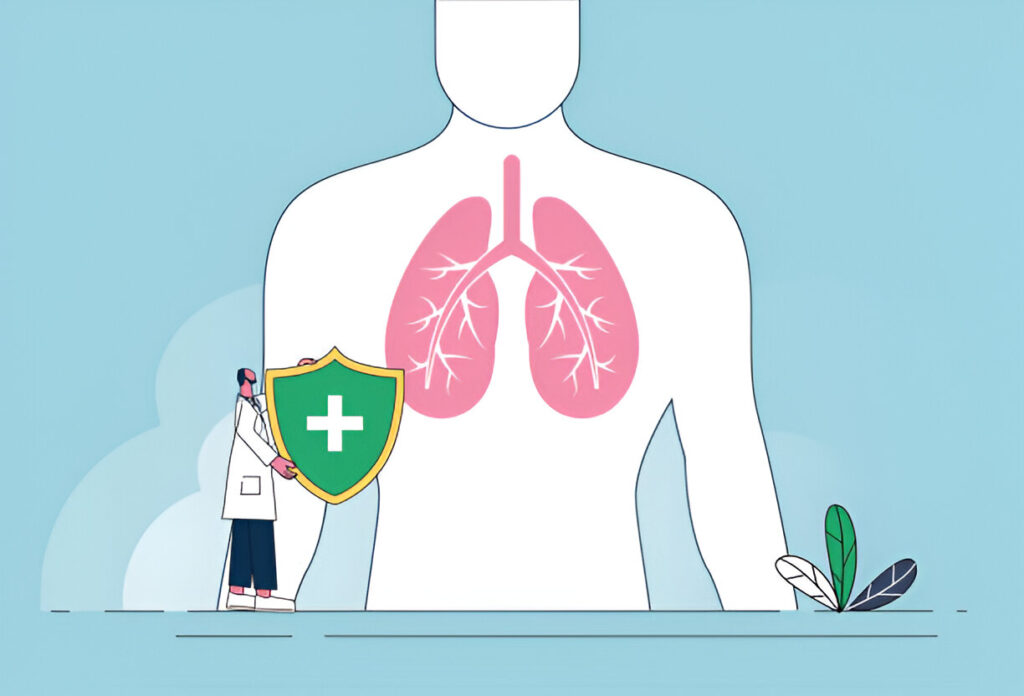Maintaining lung health is essential for overall well-being. Your lungs are vital organs that facilitate breathing, enabling oxygen to circulate through your body. Without proper care, lung diseases and respiratory issues can develop. In this guide, we will explore key practices to help you keep your lungs in optimal condition.
Avoid Smoking and Exposure to Secondhand Smoke
Smoking is one of the leading causes of lung diseases, including chronic obstructive pulmonary disease (COPD) and lung cancer. Quitting smoking is the most important step you can take to protect your lungs. Additionally, avoid exposure to secondhand smoke, which can also lead to respiratory issues.
Stay Active with Regular Exercise
Exercise strengthens the lungs and improves their efficiency. Aerobic activities like walking, jogging, swimming, or cycling are particularly beneficial. By staying active, you help your lungs to better distribute oxygen throughout your body and improve their capacity over time.
Practice Deep Breathing Exercises
Deep breathing exercises are a simple and effective way to enhance lung function. By taking slow, deep breaths, you help to clear your lungs of toxins and increase oxygen intake. Practicing these exercises daily can contribute to better lung health, especially if you have a sedentary lifestyle.
Maintain a Healthy Diet
A balanced diet rich in antioxidants, vitamins, and minerals can support lung health. Foods such as leafy greens, berries, nuts, and fish provide nutrients that help fight inflammation and promote lung repair. Staying hydrated also helps thin mucus in the lungs, making it easier to breathe.
Reduce Exposure to Air Pollution
Air pollution is a significant threat to lung health. Try to minimize your exposure to pollutants by avoiding outdoor activities on high-pollution days, using air purifiers indoors, and wearing masks in heavily polluted environments. Clean your home regularly to reduce dust, mold, and other allergens. In cases of more serious situations, such as biohazards, After Death Cleanup Atlanta GA services provide professional assistance to ensure safe and thorough cleaning.
Get Vaccinated Against Respiratory Infections
Respiratory infections like the flu, pneumonia, and COVID-19 can severely affect lung health. Vaccinations can protect you from these illnesses and prevent complications. If you’re at risk of respiratory conditions, it’s important to keep up with recommended vaccines and practice good hygiene to avoid infections.
Avoid Occupational Hazards
Certain jobs expose individuals to harmful substances like asbestos, chemicals, or dust that can damage the lungs. If you work in an environment with such risks, wear protective equipment and follow safety guidelines to minimize exposure. Regular health check-ups are also important to catch any issues early.
Monitor Your Lung Health Regularly
If you notice persistent coughing, shortness of breath, or other respiratory symptoms, consult a healthcare professional. Regular check-ups are important, especially if you have a family history of lung diseases. Early detection can help manage and treat potential lung problems before they worsen.
Conclusion
Taking proactive steps to maintain lung health can significantly improve your quality of life. By avoiding harmful habits, staying active, and eating a healthy diet, you can keep your lungs functioning optimally. Additionally, reducing exposure to environmental pollutants and staying updated on vaccinations will help protect your lungs for years to come.



